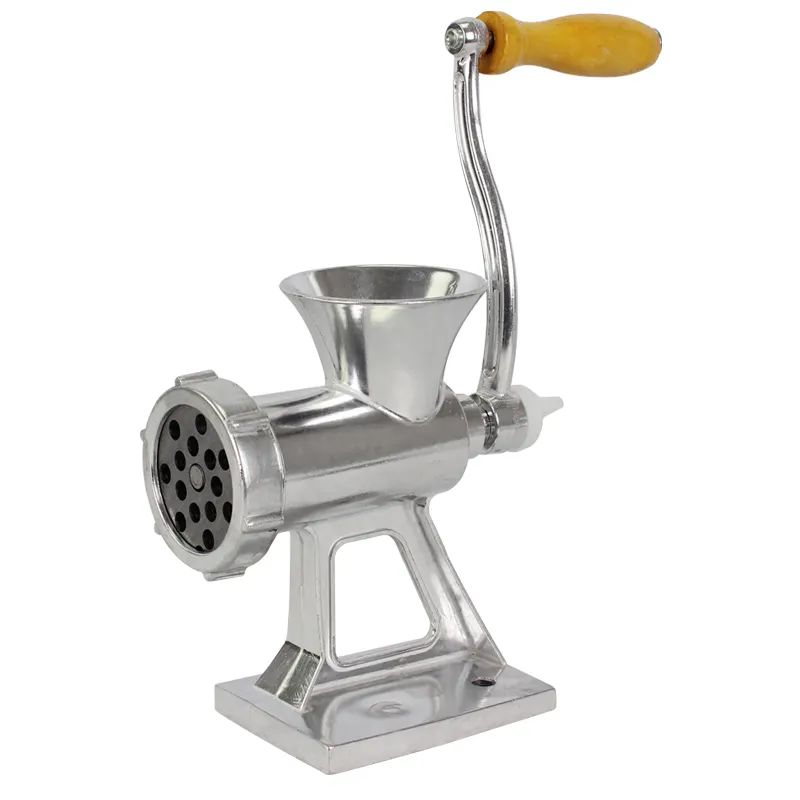When choosing a manual or electric meat grinder that suits the size of your kitchen, consider the following factors:

- Kitchen Space: First, measure the dimensions of your kitchen countertop or storage space. Manual meat grinders are usually smaller and more suitable for kitchens with limited space. Electric meat grinders may require more space, especially if you choose a model with additional accessories or a larger motor.
- Frequency of Use: If you need to grind meat frequently, you might prefer an electric meat grinder because they are quicker to operate and can save time. If you only use it occasionally, a manual meat grinder may be a cost-effective choice.
- Meat Quantity Needs: Consider how much meat you typically need to grind. If you need to grind a large amount of meat, an electric meat grinder might be more suitable because they can process large quantities of meat more quickly. If you only grind a small amount of meat occasionally, a manual meat grinder might be sufficient.
- Budget: Electric meat grinders are usually more expensive than manual ones, but they offer more convenience and efficiency. Determine your budget and choose a device that fits within it.
- Maintenance and Cleaning: Manual meat grinders are generally easier to clean and maintain because they have fewer parts. Electric meat grinders may require more maintenance, especially for the motor parts.
- Power and Outlets: If your kitchen does not have enough power outlets, or you prefer not to use electrical appliances in the kitchen, a manual meat grinder might be a better choice.
- Personal Preference: Finally, consider whether you prefer the control of manual operation or the convenience of electric devices.
Based on these factors, you can better decide whether to choose a manual or electric meat grinder and which model best suits your kitchen and cooking needs.